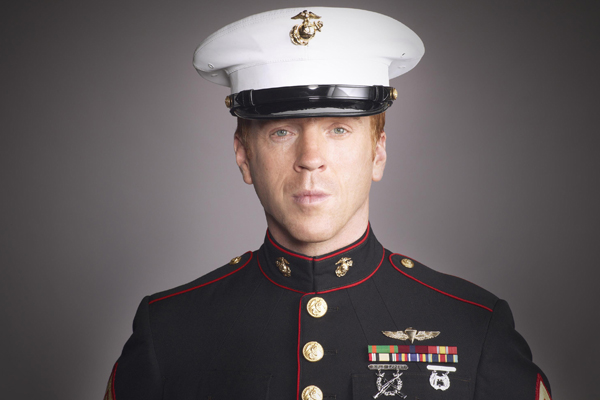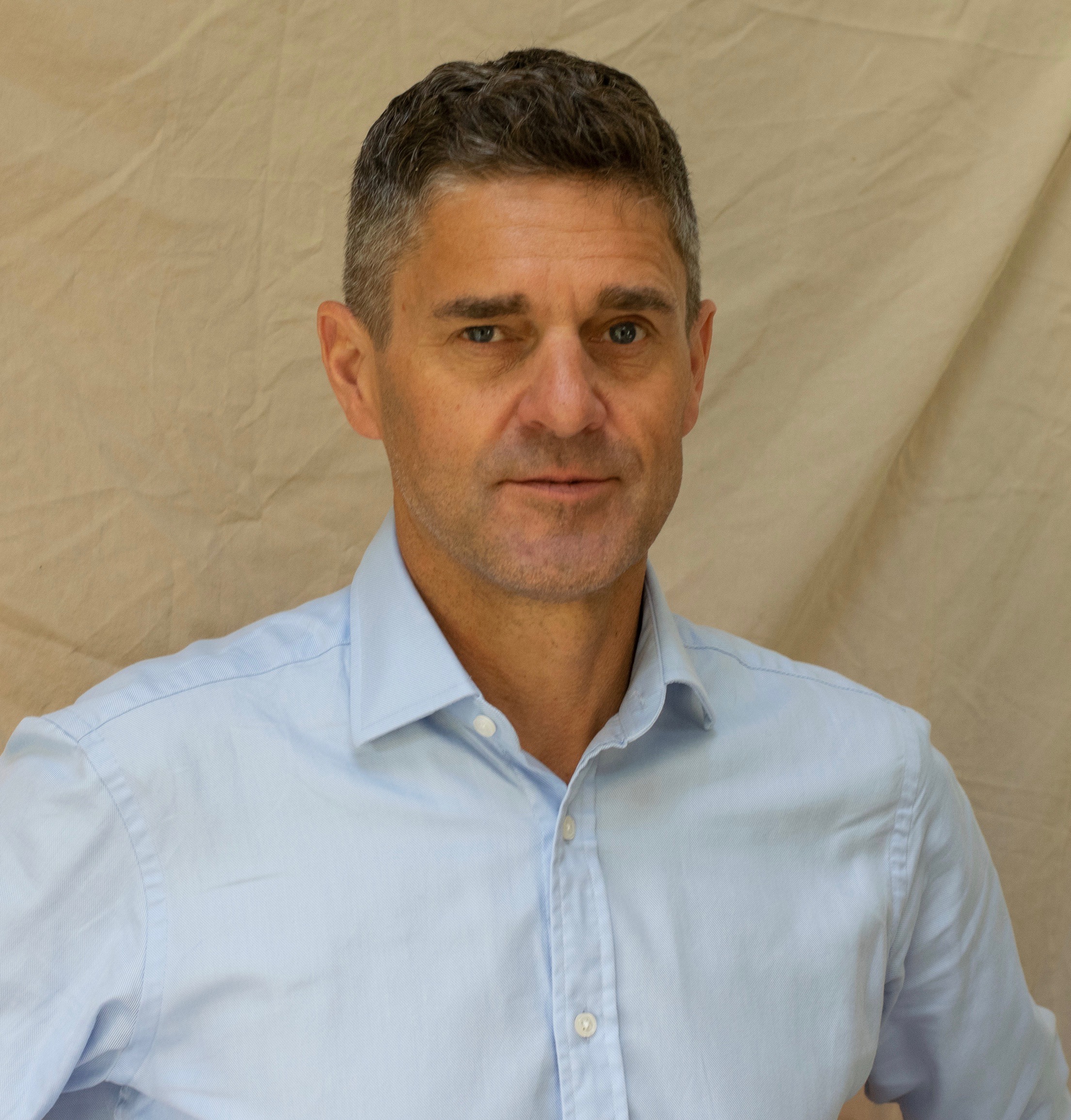Damian Lewis gives Obama something to savour

The latest updates, reviews and unmissable series to watch and more!
You are now subscribed
Your newsletter sign-up was successful
Want to add more newsletters?

ONCE A WEEK
What to Watch
Get all the latest TV news and movie reviews, streaming recommendations and exclusive interviews sent directly to your inbox each week in a newsletter put together by our experts just for you.

ONCE A WEEK
What to Watch Soapbox
Sign up to our new soap newsletter to get all the latest news, spoilers and gossip from the biggest US soaps sent straight to your inbox… so you never miss a moment of the drama!
It will possibly come as little surprise to discover that Channel 4’s ingenious and compelling new US espionage drama Homeland was created by members of the same team behind 24. The acclaimed series – reportedly a favourite of President Obama – centres on US Marine Sergeant Nicholas Brody, played by British actor Damian Lewis, who returns home a hero after being held captive by Al-Qaeda for eight years. Threatening to rain on Brody’s homecoming parade, however, is driven CIA operative Carrie Mathison (Claire Danes in her Golden-Globe winning role). Acting on intelligence she has received that a US soldier has been ‘turned’ by his captors, she is determined to prove that Brody is an enemy agent. Meanwhile, Mathison is also hiding the fact that she is mentally unstable and is taking anti-psychotic drugs. Is she really onto something, or is she delusional? Has Brody simply been traumatised by his horrific experiences, including being tortured, or is he covering up something altogether more sinister? TV&Satellite Week magazine caught up with Damian Lewis to find out more... Were you pleasantly surprised when you read that President Obama watches Homeland? “There was a column in the New York Times that cross-referenced the show with Obama’s foreign policy. It’s exciting when you’ve entered the cultural zeitgeist in such a way.” What was your first impression when you got the script? “Usually you get a call from your agent saying they’re sending you a script and you get excited. Then you read it, and you’re disappointed. That wasn’t the case with this. It was very exciting, clearly ambitious and unusual in that it set itself up as a thriller. What struck me the most was what they took on thematically. It’s incredibly dense both in terms of incident and character, and that’s something we don’t see very often.” Were you surprised that one of the themes was mental illness? “It’s a brave thing to attempt to insert a bipolar disorder at the heart of a paranoid thriller. It could easily seem like a gimmick as it very conveniently allows us to judge Claire Danes’ character Carrie and wonder whether she’s suffering from bouts of insanity and whether we should believe her or Brody. I think it works, and they deal with it sensitively. As the series develops, you’ll see that they don’t shy away from it – they embrace it and engage with the illness.” What was it like working with Mandy Patinkin? “I’ve seen him on Broadway – he tours with Patti LuPone, and that’s his first love, you’ve never seen someone happier up on stage. He was the first Che Guevarra in Evita on Broadway. The first thing I said to him was a quote from The Princess Bride: ‘Hello. My name is Inigo Montoya. You killed my father. Prepare to die.’ I wanted the ground to swallow me up.” Politically, how would you say this series compares with 24? “Homeland is certainly left-of-centre, whereas 24 faced allegations of being Republican when the New Yorker published an article saying it was a muscular, macho response to 9/11. None of us was expecting 9/11 to happen, but the CIA knew all about it, and failed to prevent it. Now we all know much more and there’s an even greater degree of paranoia, uncertainty, anxiety about the way our own governments have acted. This show is reflective of where we are now, 10 years later.” We see flashbacks of your character being tortured. Were those scenes difficult to film? “They were flipping cold, because I was naked. They are distressing, but you just get on with it. I don’t take my work home with me – I’m not a method actor. I research it fully and engage fully in the imaginary world that we create together during the hours that I’m on set. Then I forget all about it.” As a British actor, do you relish the opportunity to appear in American TV shows? “If you’re lucky enough to have a credible American accent, you can work in two worlds – over there and over here. Americans on the whole don’t; they set up shop in LA and take what comes. There’s good stuff and bad stuff made in both places.” What differences do you notice working in British and American TV? “Different traditions. Film writing is in the American DNA – it’s deep-seated. We have a tradition of people who started in theatre and transferred their talents into TV. Also, in America they spend up to seven million dollars on a pilot for a series that may not end up being made. Here we just don’t have those resources.” Did you have any concerns about playing an all-American hero who may turn out to be a traitor? “I had a long and involved conversation before I accepted the role. I said I would not accept it if there are lazy and easy parallels drawn between violence and Islam.” How did you prepare for the role? “I did a lot of reading and I met people suffering from post-traumatic stress disorder. The most helpful and revealing source material was Brian Keenan’s An Evil Cradling, which is still brilliant second time round because it’s so psychological. He writes so well, you really get a sense of his mental state which, as an actor, was very helpful behaviourally.” Did appearing in Band of Brothers help you land this role? “It had nothing to do with it whatsoever. They are two very different roles. Yes, they’re both American soldiers, but that was a celebration of an old-fashioned type of heroism, charting the deeds of Easy Company as they liberated Europe. I think they couldn’t find anyone who was stiff and old-fashioned enough in America, so they got me. I got this role because of a film I made called Keane, which deals with grief and mental breakdown. They were far more interested in that aspect of the character than they were in him being a US marine. As you can tell, it’s sort of after the event, dealing with post-traumatic stress disorder.” Homeland begins on Channel 4 on Sunday, February 19
The latest updates, reviews and unmissable series to watch and more!
Patrick McLennan is a London-based journalist and documentary maker who has worked as a writer, sub-editor, digital editor and TV producer in the UK and New Zealand. His CV includes spells as a news producer at the BBC and TVNZ, as well as web editor for Time Inc UK. He has produced TV news and entertainment features on personalities as diverse as Nick Cave, Tom Hardy, Clive James, Jodie Marsh and Kevin Bacon and he co-produced and directed The Ponds, which has screened in UK cinemas, BBC Four and is currently available on Netflix.
An entertainment writer with a diverse taste in TV and film, he lists Seinfeld, The Sopranos, The Chase, The Thick of It and Detectorists among his favourite shows, but steers well clear of most sci-fi.


